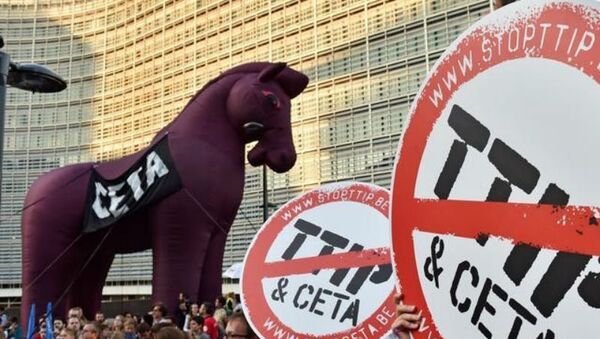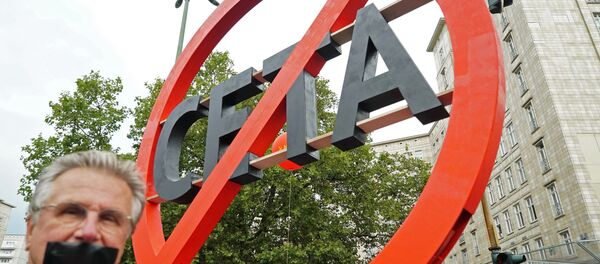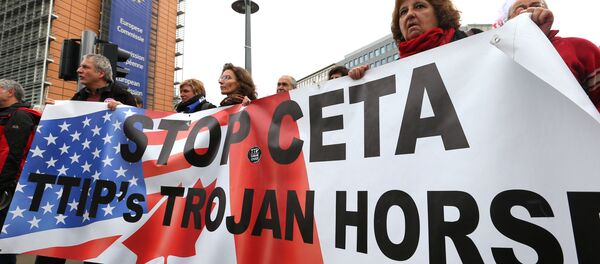"We don't want any future talks to be conducted this way since it only fuels doubts, causes misunderstanding and leads to the people justifiably not accepting them," she said.
The politician expressed her regret that Wallonia was the only one to fight for its rights and ask for guarantees.
"We wish Wallonia would not have been alone in this fight," Arena, who served as Minister President of the French Community of Wallonia, said. "There are other left-wing governments in Europe. No a single government joined this movement."
The Belgian politician pointed out that the deal was concluded as a mixed agreement. In other words, CETA has to be ratified by the EU authorities and all member states.
CETA's arbitration scheme was one of the major points of contentions for Wallonia. The region wanted the new court system to be dropped altogether or guarantees that arbitrators will be 100-percent independent.
"There is certain permeability between business and the new courts," Arena observed. "We want guarantees that if these courts have to be introduced, there will be a full separation of arbitrators and business circles. This still has not been achieved!"
CETA is a free-trade deal meant to remove 98 percent of the tariffs between Canada and the European Union. It will be signed at a summit in Brussels on October 30.





